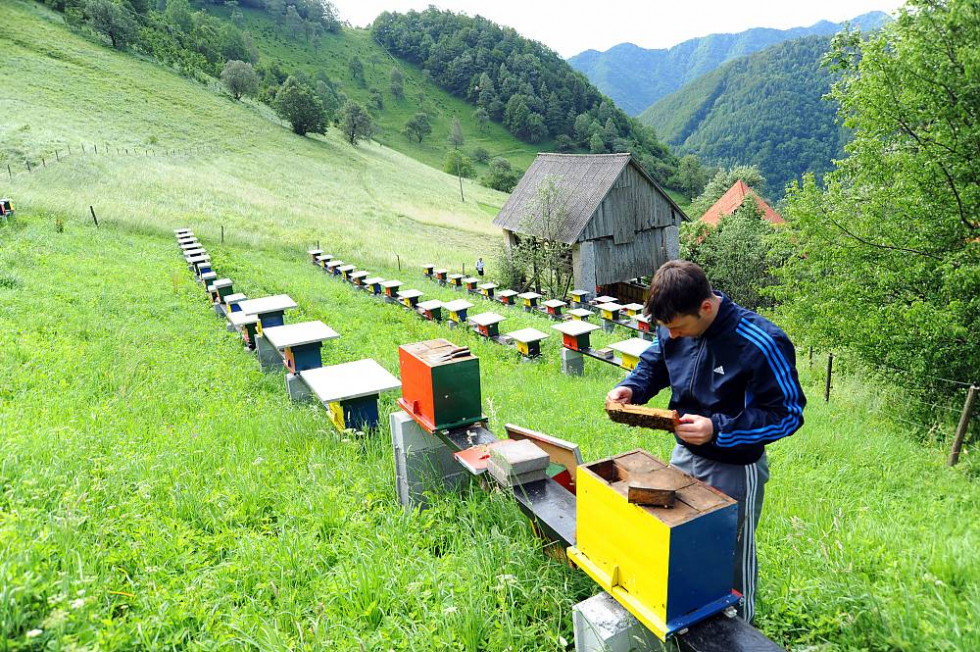Beekeeping in Slovenia on the UNESCO Representative List of Intangible Cultural Heritage

Breeding station for queen bees beneath Mount Rodica | Author Franci Šivic/Unesco
The nomination entitled 'Beekeeping in Slovenia, a way of life' was prepared by the Ministry of Culture and led by Špela Spanžel, Acting Director-General of the Cultural Heritage Directorate. Upon the confirmation of the nomination, Spanžel said, "The entry of beekeeping on the UNESCO List is first and foremost a recognition of the generations of beekeepers who have introduced Slovenian beekeeping to the world and who inspire us with their dedication, respect and modern approaches. For Slovenia, represented in Rabat by the Ministry of Culture, the entry is a commitment that it will further provide conditions which will enable beekeeping in all its dimensions – agricultural, research, educational, social, environmental and, of course, cultural."
According to Dr Asta Vrečko, Minister of Culture, this is a great new achievement for Slovenian culture, "The inscription of beekeeping on the UNESCO List of Intangible Cultural Heritage is of exceptional significance for Slovenia and the world. At the time of climate change, bees and beekeeping must receive special attention, and traditional beekeeping, which is a way of life in harmony with nature, must be nurtured in particular. The beekeeping heritage has a long history that is intertwined with culture and amateur art. Today, urban apiaries also present an important segment of beekeeping."
The experts from the Slovenian Ethnographic Museum, the Museum of Apiculture in Radovljica and the Slovenian Beekeepers' Association participated in the drafting of the nomination.
The long history and traditional beekeeping terminology were particularly highlighted in the nomination, including the knowledge, skills and practices being transmitted from generation to generation. With its immovable and movable heritage, beekeeping is firmly rooted in Slovenian space. In the modern time, it is also denoted by urban beekeeping and it is furthermore successfully evolving in the fields of apitherapy and apitourism. A respectful relationship towards bees and a centuries old tradition inspire modern terms and practices. Rich and diverse heritage of beekeeping is reflected in the terminology, expert, literary and folk tradition, art and architecture.
Some 11,000 people are involved in beekeeping in Slovenia. Beekeepers are organised in more than 200 local beekeeping societies, six regional alliances and one national association, i.e. the Slovenian Beekeepers' Association. Beekeeping is an important part of Slovenia’s international promotion, which also includes World Bee Day celebrated on 20 May.
On the UNESCO website, under point 7.b.27, more information on the nomination of the Lipizzaner Breeding Tradition is published.
So far, Slovenia has inscribed four units on the Representative List of Intangible Cultural Heritage: the Škofja Loka Passion Play, the Door-to-door rounds of Kurenti, the Bobbin lacemaking in Slovenia, and the Art of dry stone walling, knowledge and techniques, which was included in a multinational inscription. As part of the multinational nomination led by Germany, midwifery is in the process of inscription (the decision is anticipated in 2023). Slovenia also participates in the extension of the inscription of dry stone walling to three new countries.

